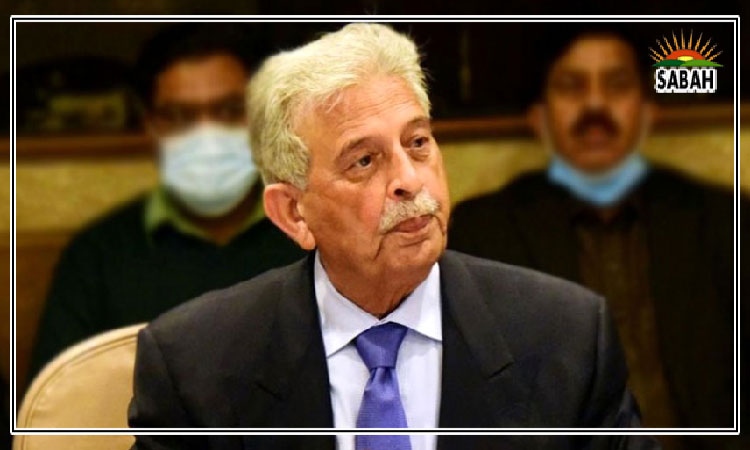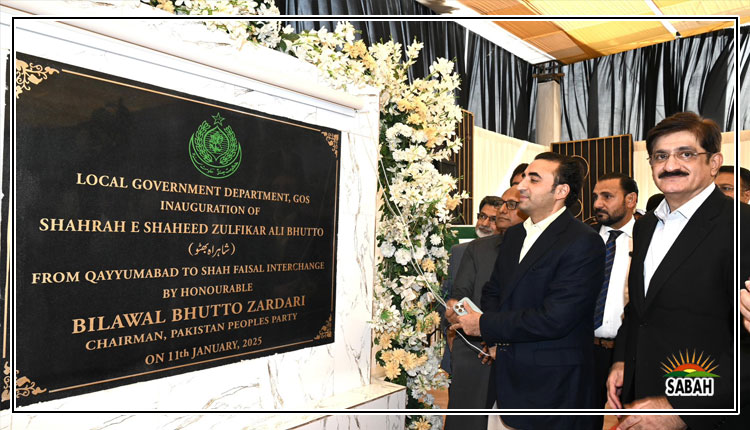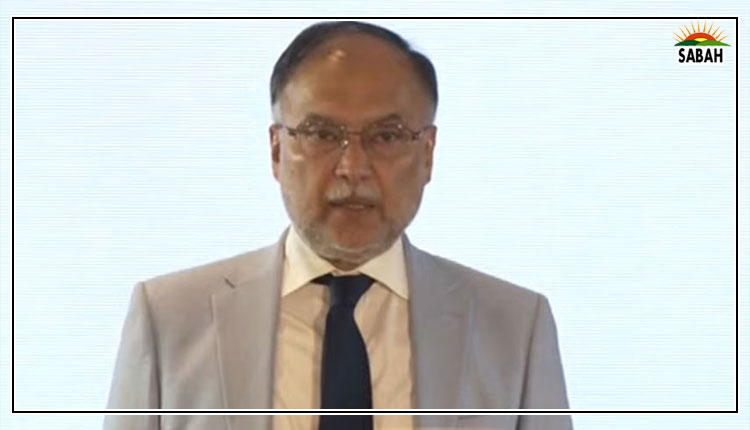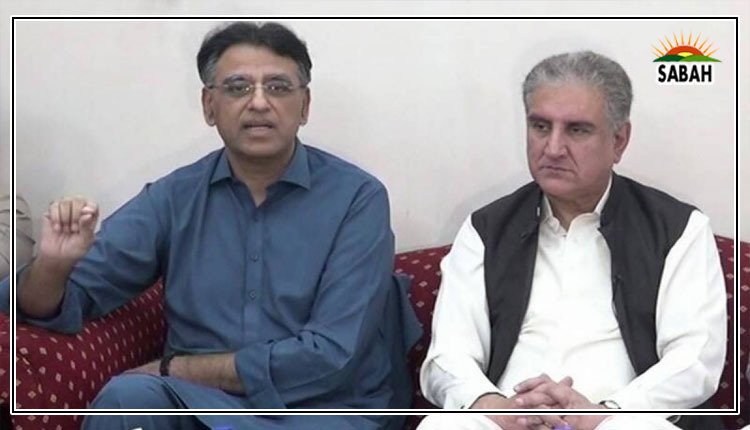District & Sessions Judge Islamabad Tahir Abbasi Sipra dismisses bail petitions of Shah Mahmood Qureshi, Asad Umar& Asad Qaiser in May 9 cases
ISLAMABAD, June 20 (SABAH): District and Sessions Judge Islamabad Tahir Abbasi Sipra dismissed the bail petitions of Pakistan Tehreek-e-Insaf (PTI) leaders Makhdoom Shah Mahmood Hussain Qureshi, Asad Umar and Asad Qaiser on Tuesday in two separate cases related to May 9 vandalism.
Television footage showed Qureshi and Umar hurriedly walking towards a vehicle and leaving the court after the judgment was announced. None of the three leaders have been arrested yet. Asad Umar was not present in the courtroom when the verdict was announced by the court on bail application. The media reported that Shah Mahmood Qureshi and Asad Umar heard the verdict while standing outside the courtroom and fled immediately after their bails were rejected. Both PTI leaders fled in the same vehicle.
Judge Tahir Abbasi Sipra took up the bail pleas of Umar and Qureshi on Tuesday, along with that of another suspect, Khan Bahadur, all three of whom were booked a case registered at Islamabad’s Tarnol police station on the complaint of Sub-Inspector Murtaza Qamar.
The case was registered under Sections 353 (assault or criminal force to deter a public servant from the discharge of his duty), 341 (punishment for wrongful restraint), 382 (theft after preparation made for causing death, hurt or restraint in order to the committing of the theft), 440 (mischief committed after preparation for causing death or hurt), 506 (punishment for criminal intimidation), 109 (punishment of abetment if the act abetted is committed in consequence and where no express provision is made for its punishment), 148 (rioting while armed with a deadly weapon), 149 (every member of an unlawful assembly guilty of an offence committed in prosecution of a common object), 186 (obstructing public servants in discharge of public functions), 188 (disobedience to order duly promulgated by public servant) and 123-A (condemnation of the creation of the state and advocacy of abolition of its sovereignty) of the Pakistan Penal Code (PPC).
During the hearing, the court order said, the counsel for the petitioners argued that his clients were “innocent” and “falsely involved” in this case on the “basis of a concocted story”.
He contended that the case against them was a result of “mala fide” and an “ulterior motive on part of the complainant and police”.
The case against them “is one of further probe and inquiry”, the counsel insisted, adding that the offences against their clients did not fall under the prohibitory clause of Section 497 (when bail may be taken in cases of non-bailable offence) of the Code of Criminal Procedure.
On these grounds, he prayed the court to accept the bail pleas so that ad-interim pre-arrest bail already granted to their clients may be confirmed.
Public Prosecutor Zahid Asif Chaudhry, contested the counsel’s arguments and sought the dismissal of bail pleas, the court order said.
After hearing arguments of both sides, the court reserved the judgment on the pleas, following which Asad Umar enquired when the ruling would be issued.
To that, Judge Tahir Abbas Sipra replied the judgment would be announced at 3:00 PM.
“I have a flight to catch at 4:00 PM, and now it seems I will have to book another flight,” Asad Umar replied, seeking permission to leave early.
But the judge told him that he needed to be in court at the time of the announcement of the judgment.
Eventually, the court issued its ruling, observing that Bahadur had been accused of blocking the Grand Trunk Road along with 250 to 300 others after PTI Chief Imran Khan’s arrest.
Citing the first information report, the order stated that these people faced allegations of raising anti-state slogans in violation of Section 188 of the PPC and assaulting a police party.
They said “they were acting in compliance with a video message of the PTI chairman, as well as under the orders of … Asad Umar and Shah Mahmood Qureshi. The crowd caused injuries to the police officials and also snatched anti-riot kits and damaged official vehicles”.
With respect to these allegations, the court observed that while freedom of assembly was the right of every citizen, “these rights are not unfettered and the state may impose restrictions upon the exercise of these rights in the interest of public order”.












